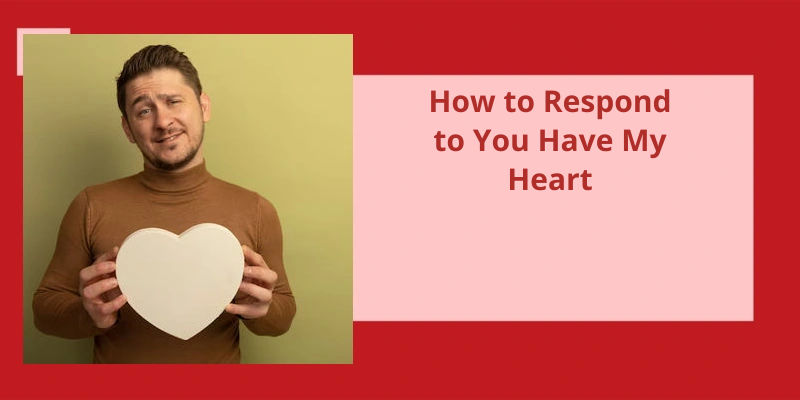"Why Are People Suddenly Nice to You? Discover the Surprising Reasons". Have you ever found yourself in a situation where people around you suddenly started showering you with kindness and generosity? It might seem perplexing at first, leaving you wondering why this sudden shift in attitudes and behaviors has occurred. In such instances, it’s crucial to delve deeper and consider two possible explanations: firstly, perhaps these individuals have done something that might jeopardize your happiness, and their newfound niceness is an attempt to compensate or alleviate any potential negative repercussions. Secondly, it’s plausible that these individuals may be driven by fear, as they perceive you as a force to be reckoned with and are adopting a friendly approach to avoid any conflict or confrontation. Understanding these underlying motivations can empower you to navigate these situations with grace and tact, enabling you to respond in a manner that not only preserves your own well-being but also fosters a positive and harmonious environment for all parties involved. Remember, being nice is a reciprocal phenomenon, so embracing kindness and extending it to others can promote a virtuous cycle of positivity and goodwill.
What Happens if You Be Nice to People?
When you choose to be nice to others, it sets off a chain reaction of positivity and kindness. People are wired to reciprocate each others behavior, so when you extend kindness, others are more likely to do the same. It creates a harmonious environment where people feel valued and appreciated, fostering greater connections and stronger relationships.
New research in the field of social psychology has shed light on the fascinating phenomenon of people perceiving others as having similar personalities to their own. When two people meet for the first time, they’ve a tendency to project their own positive qualities onto the other person, assuming they possess similar traits. This natural inclination makes it easier for kind gestures to be reciprocated. By showing kindness, you tap into this innate psychological bias, encouraging others to see the good in themselves and reinforcing their inclination to treat you kindly in return.
Furthermore, when you demonstrate kindness, you create a positive impression that sticks with people. Research suggests that people are more likely to remember instances where someone was kind to them, and they’re more likely to recall those experiences favorably.
The act of being nice also has profound effects on your own mental well-being. Research has shown that performing acts of kindness releases feel-good hormones such as oxytocin in the brain, leading to increased happiness and overall life satisfaction.
So take the opportunity to spread kindness wherever you go and enjoy the surprising reasons why people suddenly become nice to you.
Cultivating a Kindness Mindset: Provide Strategies and Techniques for Cultivating a Mindset of Kindness, Including Practicing Gratitude, Mindfulness, and Self-Compassion.
- Practice gratitude daily by acknowledging the things you’re thankful for
- Cultivate mindfulness through activities like meditation or deep breathing exercises
- Show self-compassion by treating yourself with kindness and understanding
- Engage in acts of kindness towards others, such as volunteering or helping a friend in need
- Practice active listening and empathy in your interactions with others
- Challenge negative thoughts and replace them with positive and kind affirmations
- Surround yourself with positive and kind-hearted people who inspire you
- Reflect on your actions and strive to make kindness a habit in your daily life
But it’s not just about emotions alone. Our upbringing, life experiences, and personal values also play a significant role in shaping our inclination towards kindness or indifference. Understanding the underlying factors that contribute to these differences can shed light on why some individuals exhibit kindness effortlessly, while others struggle to do so. Let’s explore the various elements that influence our propensity for kindness and delve into the intricate nuances of human behavior.
Why Are Some People Nice and Some Not?
Emotional hypersensitivity can cause individuals to react strongly to perceived slights or personal insecurities, leading to defensive or even aggressive behavior. They may struggle with empathy and have difficulty understanding others perspectives, resulting in insensitivity towards their feelings. On the contrary, those who’re emotionally guarded or hide their emotions may come across as aloof or distant, making it challenging for them to connect with others on a meaningful level.
Another factor that influences peoples niceness is their upbringing and social conditioning. People who’ve grown up in nurturing and supportive environments, surrounded by empathetic individuals, are more likely to exhibit kindness and consideration towards others. Conversely, individuals who’ve experienced trauma, neglect, or abuse may have learned to protect themselves by adopting a less friendly demeanor.
Furthermore, personal values play a significant role in shaping a persons behavior. People with a strong sense of integrity, fairness, and compassion tend to consistently display kindness, as it aligns with their core beliefs. However, individuals who prioritize their self-interest above all else may engage in behaviors that are more self-serving and less considerate of others.
Additionally, societal norms and expectations also impact how people interact with each other. In certain cultures or social circles, being pleasant and polite is highly valued, while in others, assertiveness or competitiveness may be more prevalent. Such external influences can shape a persons behavior and determine whether they’re perceived as nice or not.
Finally, individual life experiences, such as success, failure, or personal hardships, can impact how individuals treat others. Success and positive experiences can foster gratitude and generosity, making individuals more inclined to be kind. In contrast, experiencing hardships or failures might lead individuals to become more guarded or cynical, affecting their ability to consistently display kindness.
Understanding why we sometimes react with negativity towards people who’re kind to us requires delving into the concept of psychological defense mechanisms. In particular, the reaction formation comes into play, where past experiences of unkindness fuel our unconscious defense mechanism against kindness. By exploring the roots of this complex psychological behavior, we can gain insights into our own reactions and potentially find ways to overcome them.
Why Am I Mean to People Who Are Nice to Me?
Psychological defense mechanisms can play a significant role in shaping our interpersonal behaviors and reactions. One such defense mechanism, known as reaction formation, may help shed light on why some individuals find themselves being mean to people who’re kind to them, or why they develop an aversion to those who offer kind treatment.
Reaction formation can be understood as a defense mechanism that develops as a result of childhood experiences. If important figures in our lives, such as caretakers or authority figures, weren’t consistently kind to us during our formative years, it can leave a lasting impact on our psyche. To protect ourselves from the pain and vulnerability associated with longing for kindness, we may repress our desires for this treatment.
However, when faced with kindness from others in adulthood, these repressed desires resurface, challenging our ego defenses. This sudden influx of kindness can feel threatening, as it may expose the wounds we’ve carried since childhood. As a defense mechanism, our minds instinctively react with negative emotions, such as anger or resentment, to create a psychological barrier against the vulnerability of receiving kind treatment.
By being mean to those who’re kind to us, we’re effectively pushing them away and maintaining a sense of control over our emotions. This control provides a temporary respite from the underlying pain associated with feeling unworthy of kindness. It allows us to reinforce the defense mechanism of reaction formation, safeguarding ourselves from potential hurt or disappointment that may arise from accepting kindness from others.
It’s important to note that this reaction formation isn’t a conscious choice or a deliberate desire to be mean. Instead, it’s an unconscious defense mechanism that’s developed as a result of past experiences. Understanding this mechanism can enable individuals to recognize and address the underlying wounds and beliefs that fuel their negative reactions to kind treatment.
Therapy and self-reflection can offer valuable insights into these longstanding defense mechanisms, allowing individuals to reconsider their beliefs about themselves and others. Over time, addressing these underlying issues can lead to greater self-acceptance and the ability to receive kindness with open arms. Breaking the cycle of reaction formation and developing healthier patterns of interaction can promote more meaningful and fulfilling relationships with others.
Unfortunately, there are instances when people may treat others poorly despite their kind and considerate nature. This unkind behavior stems from jealousy and a feeling of insecurity in oneself. These individuals struggle to accept the fact that someone else may excel or possess qualities that they lack, leading them to attempt to bring others down to their level. Their actions aim to validate their own self-worth, even if it means making others feel inferior and insecure.
Why Are People Mean to Me When I Am Nice to Them?
It can be disheartening and confusing when you consistently encounter rude or mean behavior from others, especially when you’ve been nothing but kind and considerate towards them. The truth is, there can be several underlying reasons why people might respond negatively to your kindness. One prominent factor is jealousy. When individuals feel envious of your abilities, achievements, or positive qualities, they may lash out or belittle you as a way to cope with their own insecurities. In their eyes, by degrading you, they hope to level the playing field and regain a sense of superiority.
Another factor that contributes to this negative behavior is the fear of being insecure. When someone recognizes your strengths or accomplishments, it can trigger their own feelings of inadequacy. They may perceive your successes as a direct threat to their self-worth, causing them to treat you poorly. In their minds, if they can bring you down or make you feel insecure, it reinforces their own sense of superiority and diminishes any perceived threat to their ego. It’s unfortunate, but some individuals find satisfaction in diminishing others to elevate themselves.
Furthermore, personal insecurities combined with low self-esteem can play a significant role in how others treat you. People who lack self-confidence or harbor feelings of unworthiness may unconsciously project their self-doubts onto you. By being nice, you unintentionally highlight their own shortcomings, leading them to react with hostility or dismissiveness. It’s a defense mechanism they use to shield themselves from facing their own deepest insecurities.
Another aspect to consider is that certain individuals may have had negative past experiences, which influences their present behavior towards you. If someone has encountered betrayal, disappointment, or been mistreated in the past, they might develop a defensive attitude as a result. Despite your sincerity and kindness, they may struggle to trust and instead perceive your actions as insincere or manipulative. Past hurt can create a lens through which they view the world, and unfortunately, you may find yourself on the receiving end of their unresolved pain.
Lastly, sometimes people treat others poorly simply because they’re struggling with their own internal battles. It’s important to remember that how someone treats you is often a reflection of themselves, rather than a true reflection of your character or actions. They may be going through personal hardships, facing emotional turmoil, or grappling with unresolved trauma. As a result, they inadvertently project their own pain onto those around them, including you. While it doesn’t excuse their behavior, recognizing their struggles can provide some perspective and allow you to approach the situation with empathy and understanding.
Rather, it often stems from their own insecurities, jealousy, past experiences, low self-esteem, or personal battles. While it can be challenging to encounter such behavior, it’s important to hold onto your own inner strength and compassion. Remember that you can’t control how others treat you, but you can control how you respond to their negativity. By maintaining your kindness and understanding, you may even influence a change in their attitudes over time.
Instead of solely attributing kindness to nurturing and upbringing, psychologists have discovered that genetics play a significant role in shaping this trait. The inclination towards generosity and compassion appears to be influenced by our genes rather than solely learned behavior from parental figures. This newfound understanding highlights the intricate interplay between our genetic makeup and our propensity for kindness.
Why Are Some People Naturally Nice?
Research conducted by psychologists has shed light on the question of why some individuals seem naturally inclined to be kind. Surprisingly, it seems that genetic factors play a significant role in shaping an individuals inclination towards kindness and generosity. This research suggests that the milk of human kindness may be derived, in part, from our genes rather than solely influenced by positive role models such as our mothers.
These findings challenge the notion that kindness is solely a learned behavior, as previous studies have often emphasized the importance of socialization and environmental factors on individuals behavior. The discovery that genes can exert some influence on our propensity for kindness adds a new dimension to our understanding of human behavior.
Environmental factors, upbringing, and personal experiences undoubtedly play a crucial role as well.
Understanding the biological underpinnings of kindness could have far-reaching implications, offering insights into creating more compassionate societies and nurturing positive characteristics in future generations.
Conclusion
While it’s crucial to remain vigilant and acknowledge the possibility of hidden agendas or ulterior motives, it’s also essential to embrace the potential for genuine kindness. Rather than dwelling on skepticism or fear, a more empowering approach may be to reciprocate this kindness, creating a ripple effect that fosters positive connections and allows for authentic relationships to blossom. Ultimately, it’s through our own actions of kindness, empathy, and understanding that we can contribute to a world where people are genuinely nice to one another, fostering a culture of compassion and upliftment.






